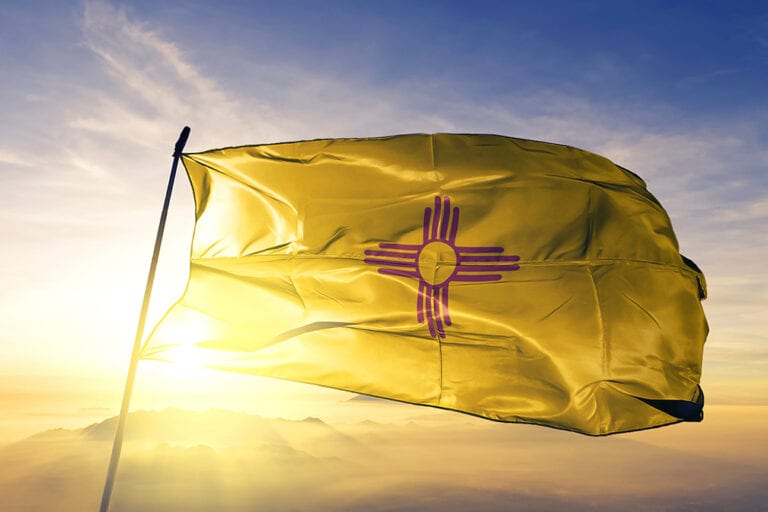ALBUQUERQUE, N.M. — A New Mexico legislative panel on March 9 advanced a measure that would set the stage for the creation of a clean fuel standard that environmentalists and Democratic Gov. Michelle Lujan Grisham say would move the state closer to reaching its carbon reduction goals.
Cars, trucks and commercial vehicles traveling throughout the expansive state amount to the second-largest source of greenhouse gas emissions in New Mexico. State environment officials say targeting the types of fuel that are offered and creating a voluntary credit program that monetizes emission reductions would put a dent in methane and other pollutants.
Bill sponsor Sen. Mimi Stewart contends that emissions could be reduced by 4.7 million metric tons over the next two decades by requiring fuel providers that refine, blend, make or import fuel to gradually reduce the carbon intensity of the fuel itself.
“That’s like taking 44,000 cars off the road every year for 15 years,” the Albuquerque Democrat said in a recent opinion piece. “A clean fuel standard would not apply to retail gas stations or cause cost increases at the pump.”
Republican lawmakers and other critics dispute that claim, saying such a proposal would lead to higher gas prices in the poverty-stricken state and the burden would be felt mostly by lower income residents.
The state Economic Development Department has acknowledged that New Mexico could see an increase in prices of less than 5%, but the agency argues that the cost of alternative fuel vehicles is expected to decrease over time, resulting in reduced alternative fuel prices as demand increases for such vehicles.
The state’s Senate Finance Committee approved the bill March 9 during a brief meeting that did not include any public comments.
The measure still needs the approval of the full New Mexico Senate and the House before lawmakers adjourn in less than two weeks. With the clock ticking, some say the bill could be fast-tracked by the Democrat-led legislature since it’s a priority of the governor.
Upon taking office in 2019, Lujan Grisham issued an executive order on addressing climate change and preventing waste across the energy sector. So far, that has included efforts by the state to craft new rules for the oil and gas industry aimed at limiting venting and flaring and boosting reporting requirements.
If adopted, New Mexico would join California and Oregon in offering credits generated by emissions-reducing technology. Some other states are considering similar clean fuel legislation.
The governor has billed the pollution measures as ways to attract new businesses and jobs focused on environmental protection and public health. Her administration has claimed that a clean fuel standard alone could spur tens of millions of dollars in annual economic investment.
“As the first state in the Southwest to seek a clean fuel standard program, we are blazing a path toward significant economic investments while tackling emissions that contribute to climate change,” the governor said in a statement.
If the measure is enacted, fuel producers and importers would have to reduce the amount of carbon in fuels by 10% by 2030 and more than double that a decade later. If they fall short, producers can purchase credits to meet the standard.
Supporters of the legislation said utilities could generate credits through sequestering greenhouse gas emissions. Other possibilities include credits from oil and gas operations and the agriculture and waste management industries.
Larry Behrens with Power the Future, an advocacy group that supports New Mexico’s traditional energy industry, said a statewide clean fuel standard would raise gas prices at a time when prices already are going up and families have yet to recover from the economic consequences of the pandemic.
The legislation includes money for the state Environment Department to craft new rules within two years. Registration fees charged to producers and those who generate credits would go into a fund to pay for oversight and enforcement by the agency.
By Susan Montoya Bryan, The Associated Press
The Associated Press is an independent global news organization dedicated to factual reporting. Founded in 1846, AP today remains the most trusted source of fast, accurate, unbiased news in all formats and the essential provider of the technology and services vital to the news business. The Trucker Media Group is subscriber of The Associated Press has been granted the license to use this content on TheTrucker.com and The Trucker newspaper in accordance with its Content License Agreement with The Associated Press.






